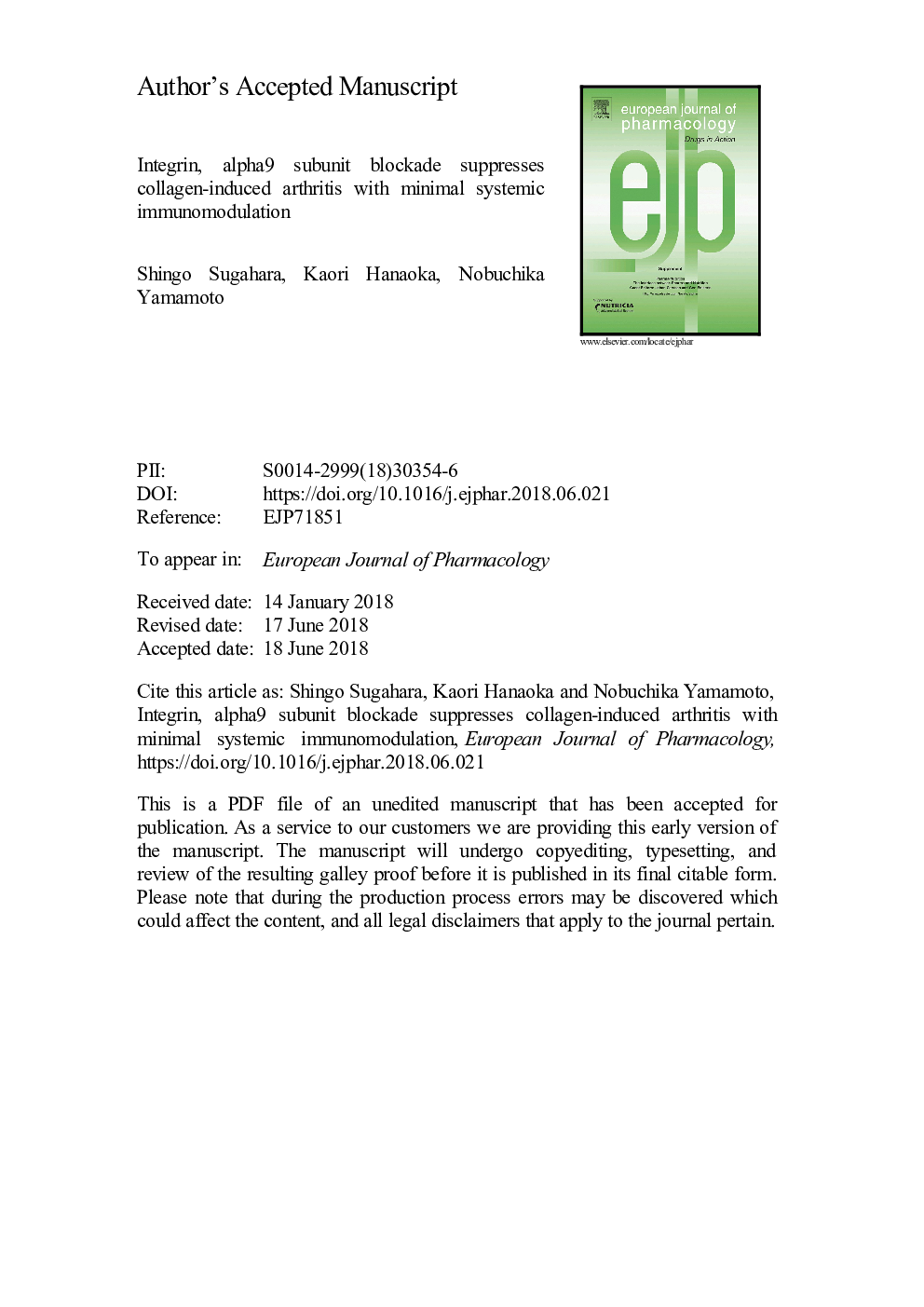| Article ID | Journal | Published Year | Pages | File Type |
|---|---|---|---|---|
| 8528994 | European Journal of Pharmacology | 2018 | 30 Pages |
Abstract
Integrin, alpha9 subunit (hereinafter, alpha9) has been identified as a novel putative therapeutic target for rheumatoid arthritis (RA). Support for this target comes from the observations that alpha9 is overexpressed both in the joints of RA patients and in animal models of arthritis. In the experimental models, the increase in alpha9 expression precedes the onset of arthritic symptoms. The current study presents data on the pharmacological profile of an anti-alpha9 antibody in a collagen-induced arthritis (CIA) mouse model. Administration of an alpha9-blocking antibody in CIA mice suppressed the development of arthritis and significantly decreased plasma level of activated fibroblast-like synoviocyte (FLS)-derived biomarkers without reducing the formation of anti-type II collagen antibodies. While anti-alpha9 antibody administration significantly suppress the accumulation of immune cells in arthritic joints it had no effect on immune cell number in the spleen. Furthermore, in non-arthritic mice, alpha9 had no inhibitory effect in either a mixed lymphocyte reaction (MLR) or in a delayed type hypersensitivity (DTH) reaction. These results suggest that blocking alpha9 exerts its anti-arthritic effect through suppression of FLS-activation via a non-immune mediated mechanism. Finally, therapeutic administration of anti-alpha9 antibody alleviated established arthritis in CIA mice. Our data provide evidence that alpha9 blockade is a promising therapy for joint inflammation with minimal systemic immunomodulation.
Related Topics
Life Sciences
Neuroscience
Cellular and Molecular Neuroscience
Authors
Shingo Sugahara, Kaori Hanaoka, Nobuchika Yamamoto,
